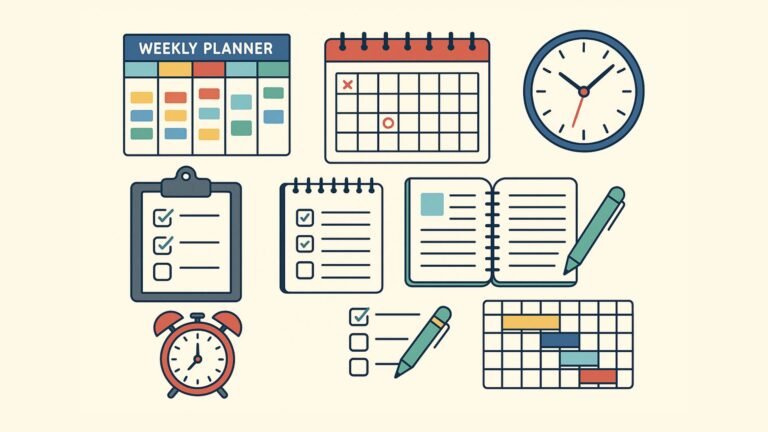Every year, over 400,000 students worldwide set their sights on the Ivy League.
They dream of Harvard’s red-brick halls, Princeton’s Gothic architecture, Yale’s vibrant student life, and Columbia’s unmatched city access. Yet, only a small fraction are admitted.
Why?
Because Ivy League admissions are a strategic game, not just an academic one. Perfect grades and test scores will get you considered, but they won’t guarantee entry.
What sets successful applicants apart is early planning—knowing exactly how to build an application that stands out by Grade 11.
This is where Ivy League college planning tools become essential. These tools aren’t just apps or software; they’re structured systems that help you:
- Organize academics to demonstrate rigor.
- Balance time across studies, test prep, and activities.
- Track extracurricular impact with measurable outcomes.
- Build intellectual curiosity through research and reading.
- Craft compelling essays and prepare for interviews.
- Get expert mentorship that avoids costly mistakes.
In this blog, we’ll explore the seven most powerful Ivy League college planning tools you must master before the end of Grade 11.
In Part 1, we’ll cover the first four: academics, time management, standardized test prep, and extracurricular tracking.
Tool 1: Academic Roadmapping Software
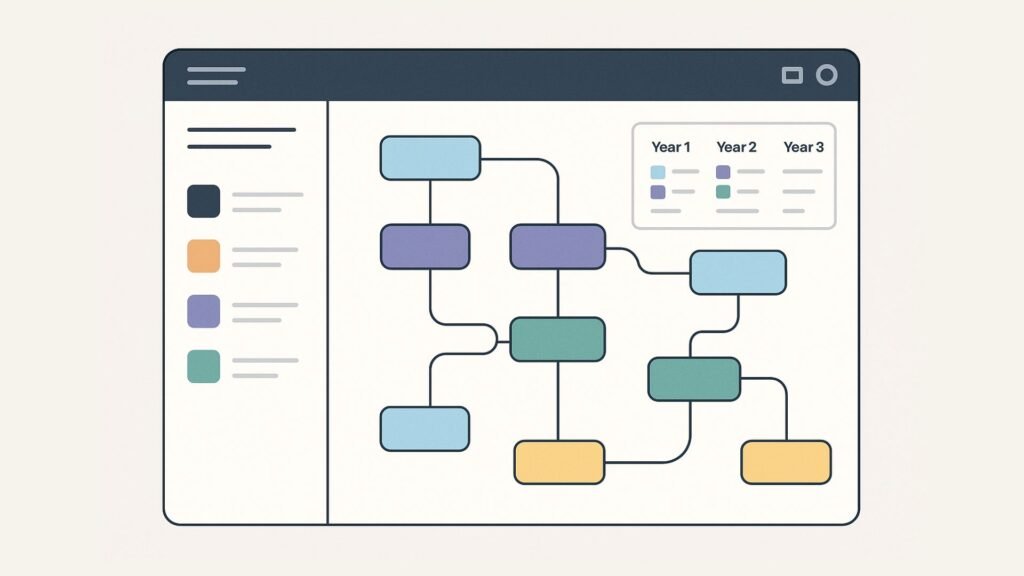
Why Academic Planning Still Matters
Academics are the cornerstone of your Ivy League application. While admissions are holistic, your transcript is often the first filter. By Grade 11, admissions officers expect to see:
- Rigor: Taking AP, IB, or honors courses when available.
- Progression: Moving from standard to advanced levels.
- Breadth & Depth: Balancing STEM and humanities while showing expertise in your area of interest.
For example, if you’re aiming for a computer science major, admissions officers want to see advanced math and science, but also evidence of communication through advanced English or history classes.
Without a roadmap, students often choose classes randomly, missing chances to highlight academic ambition.
Recommended Ivy League College Planning Tools
- Cialfo & MaiaLearning – These platforms let you map your four-year academic plan and compare it against Ivy League expectations. They highlight if you’re missing core rigor (like AP Calculus or IB HL sciences).
- Google Sheets GPA Tracker – Build a simple tracker to log assignment grades, test averages, and semester GPAs. This shows trends over time and helps identify weaknesses early.
- College Board BigFuture – Provides guidance on AP courses and how they align with admissions expectations.
Example Academic Pathway
- Freshman Year: Honors-level courses in English, Math, and Science.
- Sophomore Year: Start AP/IB courses like AP World History or IB Chemistry.
- Junior Year (Grade 11): Take the most challenging load available—AP Calculus, AP Physics, AP Literature, or similar.
- Senior Year: Cap with electives that reinforce your intended major, such as AP Computer Science or IB Economics.
A clear academic roadmap not only keeps you organized but also demonstrates deliberate decision-making to admissions officers.
Practical Tip
Update your academic plan every semester. If your GPA dips in one subject, adjust study schedules or tutoring early instead of waiting until senior year.
Tool 2: Time-Management & Productivity Apps
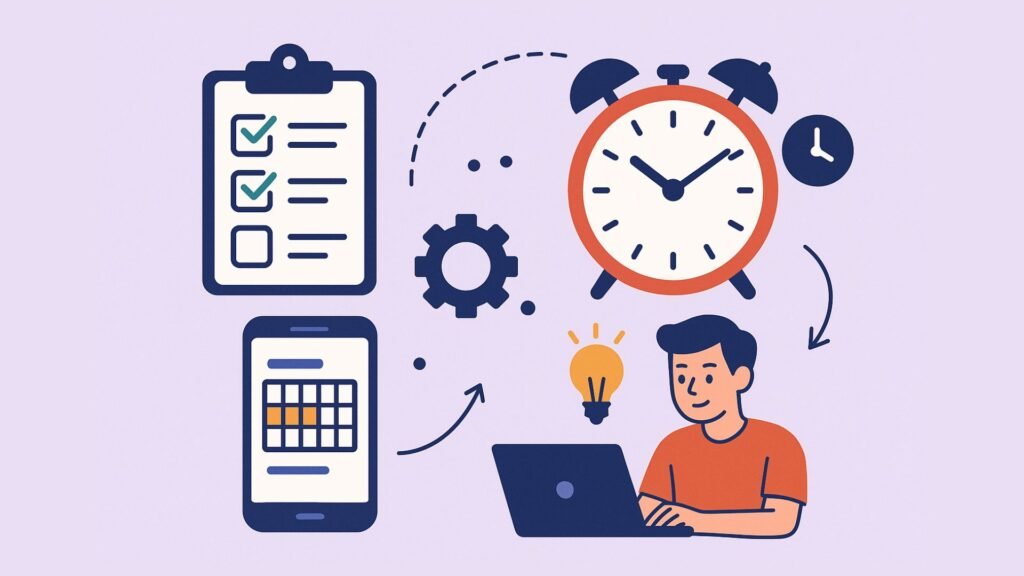
Why Time Management Defines Grade 11
By junior year, your calendar fills quickly. Between AP/IB classes, SAT or ACT prep, leadership roles, volunteering, and personal commitments, it’s easy to become overwhelmed.
Admissions officers notice when students spread themselves too thin versus when they manage time effectively.
Structured time management ensures you:
- Stay consistent with test prep.
- Deliver sustained extracurricular involvement.
- Avoid last-minute essay writing.
- Balance academics with personal well-being.
Recommended Ivy League College Planning Tools for Scheduling
- Notion – Build dashboards for assignments, deadlines, and essay drafts. Customizable templates make it ideal for high school students.
- Trello/Asana – Use Kanban boards to manage tasks. For example, create separate columns for “Test Prep,” “Essays,” and “Extracurricular Projects.”
- Forest App – Train yourself to focus by planting virtual trees each time you stay distraction-free.
Example Weekly Structure
- Monday–Friday:
- 2 hours for homework.
- 30 minutes for standardized test prep.
- 30 minutes for extracurricular leadership tasks.
- 2 hours for homework.
- Saturday: Full-length SAT/ACT mock test and review.
- Sunday: Research, reading, and essay brainstorming.
This small but consistent structure is what separates students who panic in senior year from those who are confidently prepared.
Tool 3: Standardized Test Prep Platforms
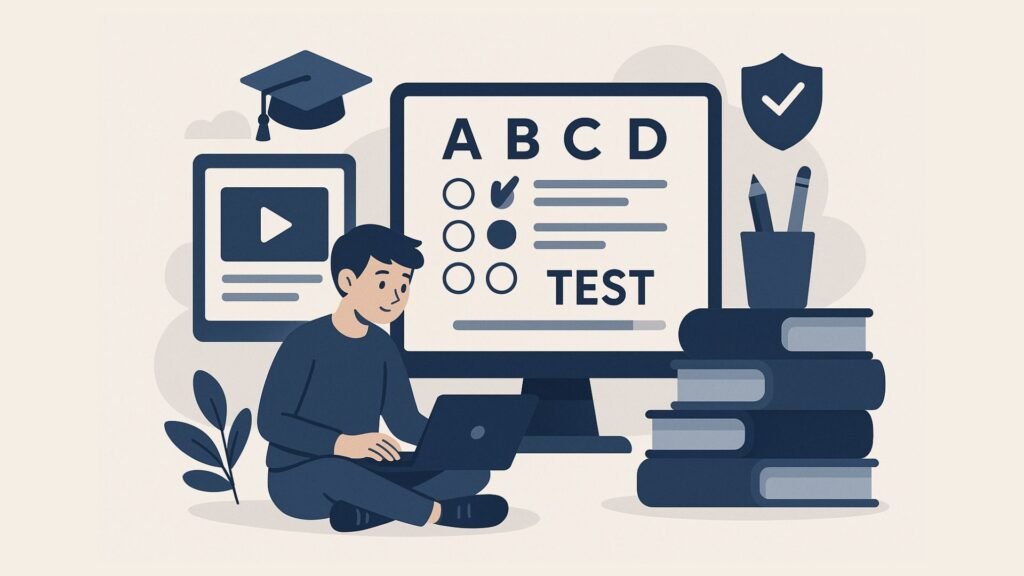
Why Tests Still Hold Weight
Although many Ivy League schools are test-optional, standardized tests still play an important role. Strong SAT/ACT scores can:
- Offset weaker areas in your GPA.
- Showcase academic ability on an international scale.
- Boost competitiveness, especially for international applicants.
By Grade 11, serious test prep must be underway. Delaying until senior year limits opportunities to retake tests and improve scores.
Recommended Ivy League College Planning Tools for Test Prep
- Khan Academy Official SAT Prep – Free, personalized, and directly partnered with the College Board.
- Princeton Review & Kaplan – Paid platforms that provide analytics, targeted practice, and tutor access.
- Bluebook SAT App – Allows students to simulate real SAT conditions digitally.
Sample Test Prep Timeline
- January–March (Grade 11): Focus on building foundations—practice math and reading sections individually.
- April–June: Take weekly full-length practice tests to build stamina.
- July–August: Target weak areas using analytics from prep platforms.
- Fall of Grade 12: Take the SAT/ACT at least twice before early decision deadlines.
Practical Tip
Don’t just practice endlessly—analyze your mistakes. Use prep platforms that break down performance by category (algebra, grammar, critical reading) so you can adjust your study plan.
Tool 4: Extracurricular Tracking Systems
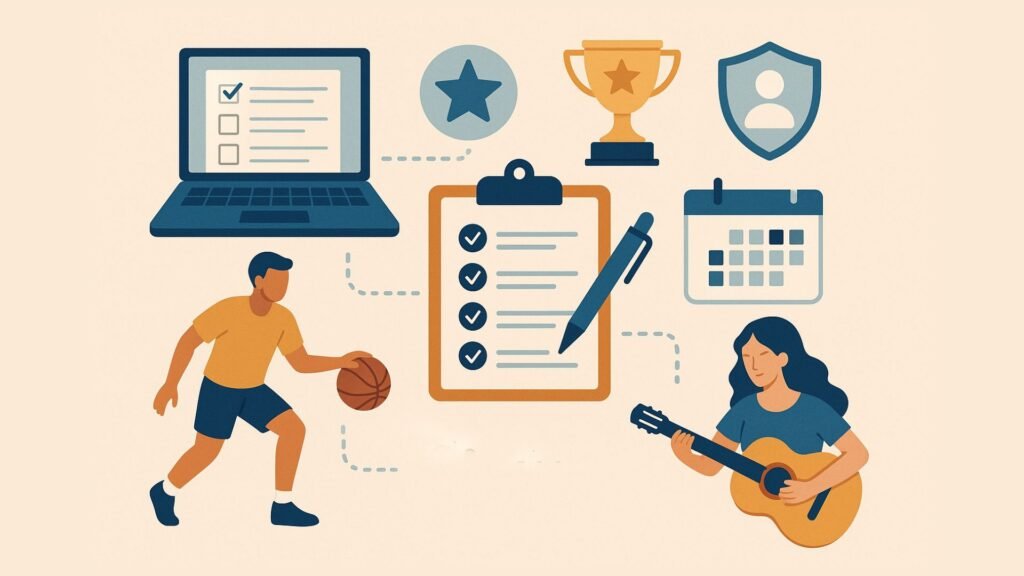
Why Extracurriculars Must Show Depth
Ivy League schools aren’t impressed by a laundry list of activities. They want impact—evidence that you’ve committed to meaningful pursuits and grown into leadership roles.
By Grade 11, your extracurriculars should already demonstrate:
- Consistency: Involvement over multiple years.
- Depth: Taking on increasing responsibility.
- Impact: Achievements that made a difference for others.
Recommended Ivy League College Planning Tools for Extracurriculars
- Airtable or Trello – Use boards to log activities, track hours, and note milestones like leadership promotions.
- Excel Sheets – Create a column-based tracker with categories: “Activity,” “Role,” “Hours,” “Achievements,” “Impact.”
- Google Drive Portfolio – Store documents, certificates, photos, or newspaper clippings to support your claims.
- PIPPAMS – A specialized platform that helps students track extracurriculars, leadership roles, and achievements in one place. For Ivy League-bound students, it ensures that activities are well-documented and presented in a structured way, making applications stronger and easier to manage.
Example of Growth in Activities
- Freshman Year: Member of debate club.
- Sophomore Year: Competed in local tournaments.
- Junior Year (Grade 11): Became club president, organized a state-wide competition with 200 participants, and launched a mentorship program for younger students.
By tracking this carefully, you can craft precise activity descriptions on the Common App, like:
“Founded mentorship program in debate club, recruiting 15 senior mentors and training 40 juniors, resulting in state championship qualification.”
That’s far stronger than: “Active in debate club.”
Admissions officers don’t just read what you did, they read how you made an impact. Tracking makes your contributions stand out.
Practical Tip
Every three months, update your tracker. Write down not only hours spent but also tangible results, like “organized fundraiser, raised $2,500 for local nonprofit.” These details become gold for applications later.
Tool 5: Research & Reading Platforms

Why Independent Exploration is a Key Differentiator
One of the clearest signals that a student is ready for an Ivy League education is intellectual curiosity. Grades prove you can perform in class. Test scores prove you can handle standardized assessments.
But what shows that you are genuinely excited to learn? Your willingness to go beyond the curriculum.
By Grade 11, you should already be reading, exploring, and even conducting research in your areas of interest. Admissions officers value students who:
- Read advanced material not required by school.
- Take part in research projects, either independently or with mentors.
- Explore new subjects that connect with their intended major.
Recommended Ivy League College Planning Tools for Research
- Google Scholar – Free, accessible, and filled with peer-reviewed articles. Perfect for building knowledge in STEM, humanities, or social sciences.
- JSTOR – A widely respected academic database. Some high schools and libraries give free access. Great for citing credible material in essays.
- Zotero/Mendeley – Tools to organize citations, notes, and bibliographies if you’re writing research papers.
- Feedly/Pocket – Apps that curate articles and blog posts. Helpful in staying updated on industry trends or niche interests.
Example Application of Research
If you want to apply for economics at Princeton:
- Use JSTOR to read about behavioral economics.
- Summarize articles in a personal blog.
- Conduct a small survey at your school applying those concepts.
This combination of reading and application creates a strong narrative: you’re not just a student—you’re a thinker.
Practical Tips for Students
- Dedicate one hour per week to academic reading outside your syllabus.
- Keep a journal to reflect on new concepts and questions that arise.
- Save key articles in Zotero to reference later for essays or interviews.
Both claim interest, but Student B demonstrates initiative, curiosity, and impact. This is the kind of differentiation Ivy League schools reward.
Tool 6: Communication & Writing Tools
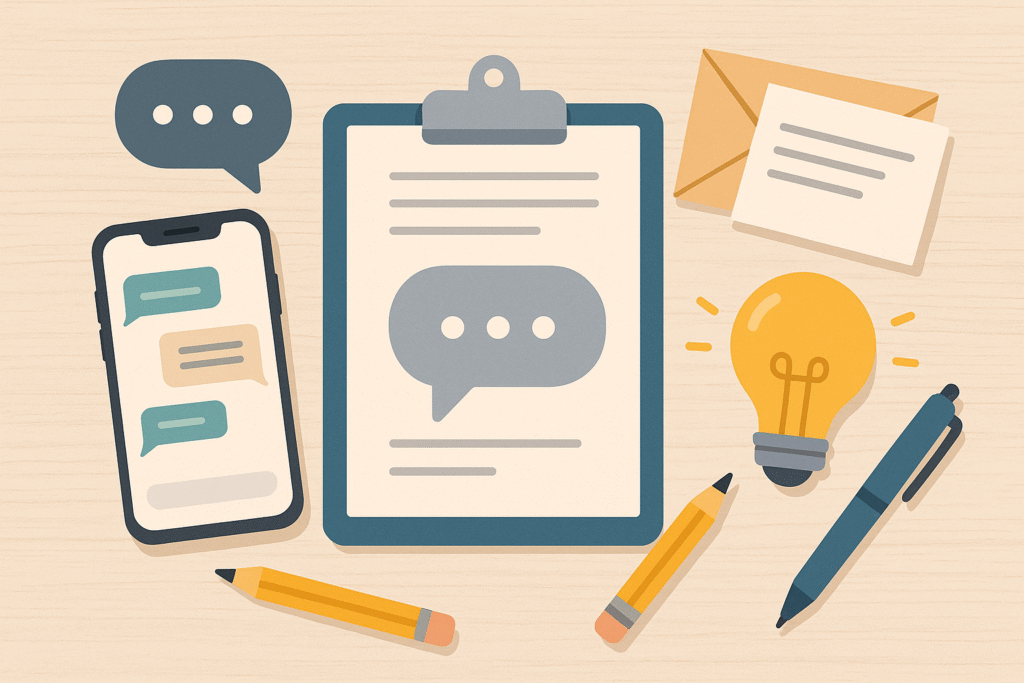
Why Essays and Interviews Shape Admissions Outcomes
The Common App essay, supplemental essays, and alumni interviews are where your application becomes personal. While academics and activities show what you’ve done, essays show who you are.
And interviews test how clearly and confidently you can share your vision.
Without strong communication, even excellent achievements risk being overlooked. That’s why Ivy League college planning tools designed for writing and communication are essential by Grade 11.
Recommended Tools for Writing & Speaking
- Grammarly & Hemingway App – Refine essays for clarity, tone, and correctness. Ivy League essays must be error-free and engaging.
- Scrivener – A robust writing tool for organizing multiple drafts and brainstorming notes. Especially useful for long essays.
- Speechify – Converts text into audio. Listening to your essay helps identify awkward phrasing and flow issues.
- Zoom Recording– Record mock interviews, play them back, and refine tone and delivery.
What Strong Essays Look Like
- They tell a story, not a résumé recap.
- They show growth—how you changed, not just what you did.
- They are specific—avoiding vague clichés like “I learned teamwork.”
Example
- Student A writes: “Being debate captain taught me leadership and teamwork.”
- Student B writes: “When our debate team lost five rounds in a row, I redesigned our practice system. By our final tournament, we reached the quarterfinals. More than winning, I learned how persistence shapes improvement.”
The second essay shows detail, action, and reflection. That’s what Ivy League schools look for.
Tips for Interview Prep
- Practice answering: “Why this college?” with specific references.
- Be ready to talk about one activity in depth.
- Use Zoom mock interviews with friends or mentors.
Practical Writing Routine
- Draft essays in Grade 11 summer.
- Use Grammarly for error checks.
- Share drafts with teachers or mentors for feedback.
- Revise multiple times until your voice is clear and authentic.
By treating communication as a skill to be sharpened with tools, you give yourself a competitive edge that many students neglect until it’s too late.
Tool 7: College Counseling & Mentorship Platforms
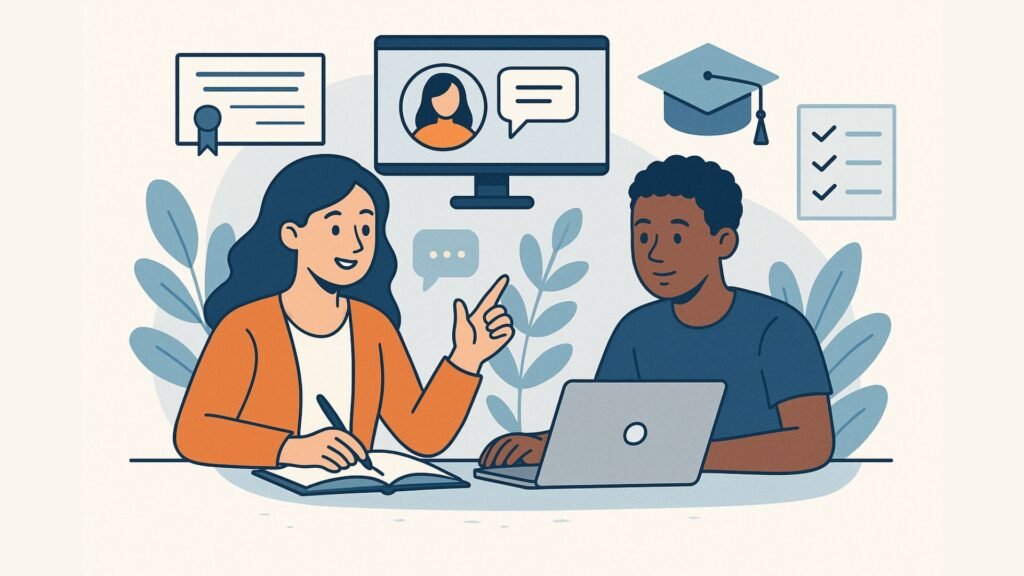
Why Professional Guidance Makes a Difference
The Ivy League application process is one of the most complex in the world. It requires:
- Dozens of essays across multiple colleges.
- Strong letters of recommendation.
- Activity lists that highlight depth, not just breadth.
- Timely submission to meet early deadlines.
Even brilliant students make mistakes when applying without guidance. They write vague essays, fail to demonstrate impact, or miss critical deadlines.
That’s why the final category of Ivy League college planning tools—mentorship platforms—is so powerful.
Recommended Mentorship Tools
Essai (essai.in) – A leading platform that specializes in Ivy League admissions mentoring. They provide personalized academic roadmaps, essay feedback, interview coaching, and activity strategy.
How Mentorship Adds Value
- Accountability: Keeps you on track with timelines.
- Strategy: Ensures activities and essays complement each other.
- Polish: Raises essays from good to outstanding with feedback.
- Confidence: Prepares you for interviews and essays without last-minute panic.
Example
- Student A applies alone. Their application shows strong academics but generic essays and unpolished activity descriptions.
- Student B works with a counselor at Essai, receives multiple rounds of essay feedback, practices interviews, and refines activity narratives.
When admissions officers review Student B’s application, it reads as focused, cohesive, and intentional. The guidance translates into a higher likelihood of success.
Practical Tip
If mentorship feels overwhelming, start small:
- Use a free consultation to identify gaps in your application.
- Invest in targeted help for essays and activity lists if full-service counseling isn’t feasible.
By Grade 11, mentorship is not a luxury; it’s a wise investment in your future.
FAQs
1. When should I start using Ivy League college planning tools?
The best time is Grade 9. But if you’re already in Grade 11, don’t panic. Start now. Every month of structured planning increases your competitiveness.
2. Are academics more important than activities?
Both matter. Strong academics get you considered, but activities demonstrate leadership, initiative, and impact. The right tools ensure you shine in both areas.
3. Do Ivy Leagues prefer certain extracurriculars?
No activity is automatically better. What matters is depth and impact. A robotics club that wins regional awards can be just as impressive as a music initiative that raises funds for charity—if tracked and presented well.
4. How many standardized test attempts are ideal?
Most Ivy League applicants take the SAT/ACT two to three times. Use planning tools to monitor progress and schedule exams well before senior year deadlines.
5. How do mentorship platforms like Essai improve applications?
Essai provides personalized roadmaps, expert essay reviews, and interview prep. This ensures your application is not only complete but compelling, turning strong potential into a polished narrative.
The Ivy League dream doesn’t happen overnight. It’s built year by year, choice by choice, and tool by tool.
By Grade 11, your success depends on how effectively you use Ivy League college planning tools to structure academics, balance time, prepare for tests, track activities, explore research, strengthen communication, and seek expert guidance.
Without these systems, even the most talented students risk being overlooked. With them, you gain clarity, control, and the confidence that your application reflects your best self.
And if you want to maximize your chances, Essai is here to help. Their mentorship brings together every tool you need into a guided, strategic journey—so when admissions officers open your application, they don’t just see another student. They see a future Ivy League leader.
Start planning today. Use the tools. Stay consistent.

